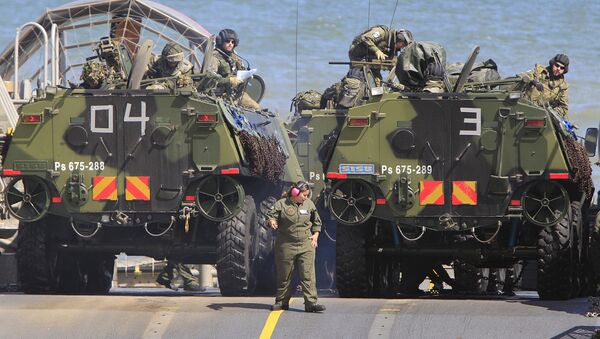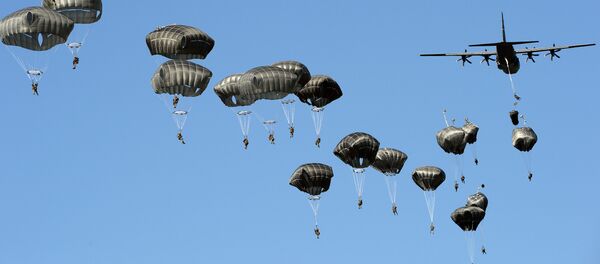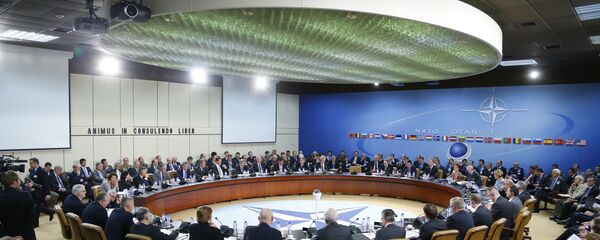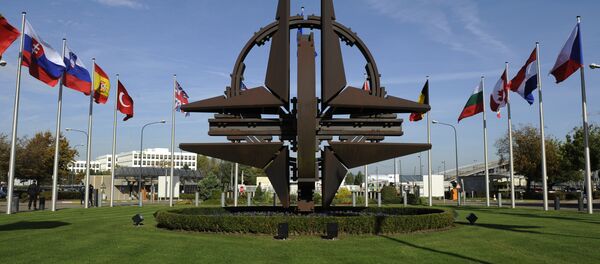According to the author, there are several dimensions in which NATO is ramping up activities.
First, the alliance is conducting several strategic exercises simultaneously. They are aimed to test NATO members’ defense capabilities as well as to send a warning signal to Russia.
In addition, the drills are showing a "sign of solidarity" to NATO’s allies in Europe. "Despite the April meeting of the Russia-NATO council, the era of coordination with Russia has closed," Bret wrote.
As a result, Russia now sees the NATO expansion as a threat, rather than just a danger, the author underscored.
Third, NATO also wants to involve in its war games traditionally neutral countries, like Sweden and Finland. For example, after Russia’s alleged violation of Swedish airspace and territorial waters Stockholm adopted a firm stance towards Moscow and intensified its contacts with the alliance, the article read.
In turn, admission to NATO has been one of the key issues of the electoral campaign in Finland. Most of country’s residents now support the initiative, so Finland is not as neutral as before, the article read.
The result is that buffer states which previously could choose between Russia and NATO are now leaning towards the alliance, the analyst noted.
Furthermore, NATO is reviving its project of a European missile defense shield, having crossed a "red line" as the situation is seen by Moscow, the article read.
This is a symbolic gesture, drawing a line under 10-year-long debates between Washington and Moscow on deterrence capabilities and Russia’s influence in Europe, the author wrote.
Finally, these initiatives will be discussed during the upcoming NATO summit in Warsaw, during which the alliance’s collective defense is expected to be strengthened to a level never seen since the Cold War. The choice of Warsaw is symbolic. Now, Poland plays the key role in maintaining security within the alliance. What is more, NATO uses Poland to highlight the geopolitical risks it is facing in the Baltics, the analyst wrote.
Bret concluded that now NATO is trying to define its historic role which has been in doubt since the fall of the Soviet Union. Previously, NATO saw its mission in fighting terrorism and then in establishing peace far beyond its border. But now the alliance has returned to uniting European nations against the "Russian threat."
In turn, the NATO buildup would provoke a military response from Russia, including in the Kaliningrad Region, in Crimea, and along the Ukrainian border, the analyst suggested.
According to Bret, the European collective defense is returning to its primitive state which is based on the balance of power and a system of checks and balances.
If NATO is increasing its role in Europe this would undermine the principles of Europe’s own collective defense.
"Amid rising tensions between NATO and Russia, Europe risks losing its strategic autonomy it has managed to keep," the author concluded.





